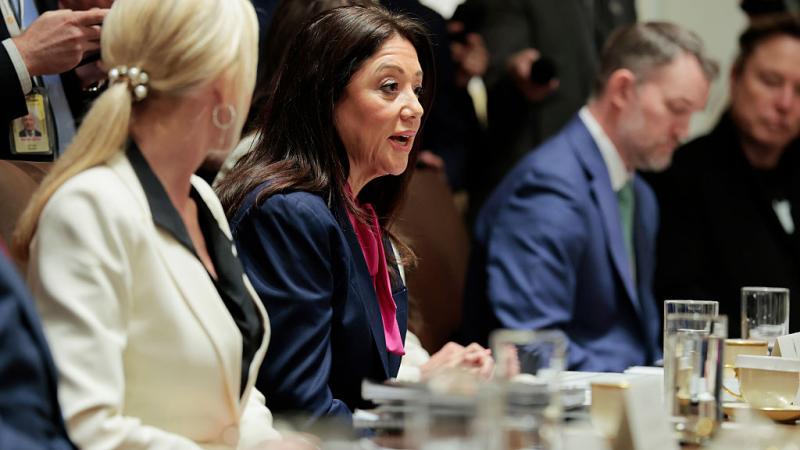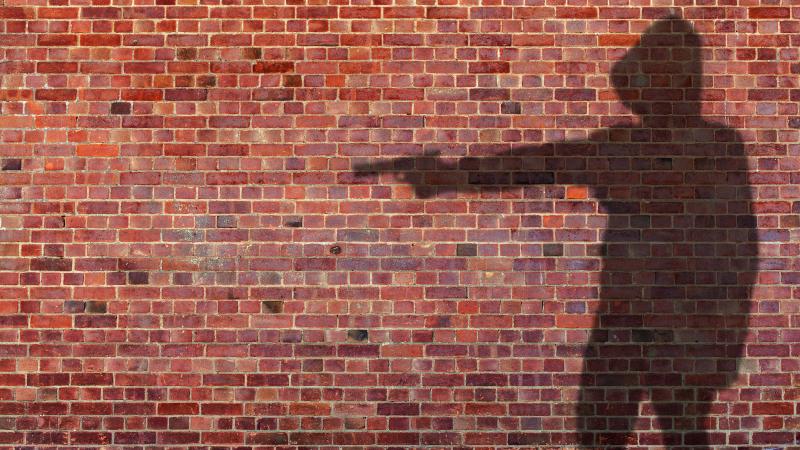NIH censorship of critics unconstitutional, appeals court says, HHS sued for COVID coverup records
Conservatives and animal rights activists have become strange bedfellows in recent years on First Amendment, FOIA issues. Exposed interview with lab operator verifies "Beaglegate" allegations Fauci long denied with Washington Post's help.
The National Institutes of Health doesn't want you to use the words "animal," "testing" or "cruel" in comments on its social media pages. Too bad, the U.S. Court of Appeals for the D.C. Circuit told the agency.
Animal experimentation is at the heart of First Amendment and Freedom of Information Act litigation against the feds, with People for the Ethical Treatment of Animals recently defeating NIH in court and Judicial Watch suing the Department of Health and Human Services (HHS) for stonewalling its requests for communications about an alleged COVID-19 coverup.
Neither agency responded to Just the News queries for their response to the legal developments.
Conservatives and animal rights activists have become strange bedfellows in recent years, sometimes on the same issue or just the same principle.
PETA and Animal Outlook supported Project Veritas this year in a friend-of-the-court brief at the 9th Circuit against an Oregon law that prohibits "unannounced audiovisual recording" in public, except when the target is an on-duty cop or a life-threatening felony is taking place.
Like the undercover conservative sting organization, known for exposing a Pfizer executive discussing its plans to "mutate" COVID to protect its "cash cow," the animal rights groups go undercover to document and expose cruelty and crimes against animals, they said.
The White Coat Waste Project became so important to congressional Republicans' efforts to expose the feds' involvement in risky bat research at home and abroad – and to associate former National Institute of Allergy and Infectious Diseases Director Dr. Anthony Fauci with puppy torture – that The Washington Post portrayed it as a GOP front and source of misinformation.
The Post "spent years publishing flattering profiles on this group and its innovative bipartisan strategies" until it endangered Fauci's reputation, journalist Glenn Greenwald noted then.
More than two-and-a half-years after opinion columnist Dana Milbank and reporter Yasmeen Abutaleb worked with NIAID to discredit WCW's "Beaglegate" allegations, as revealed by a FOIA production, the Post's fact-checker Glenn Kessler confirmed they were accurate.
Last week WCW published an Oct. 25, 2021 radio interview in which the director of the Tunisian lab that performed the puppy experiments said they were funded by NIH "throughout [sic] the institute Dr. Fauci is managing."
The group obtained the recording through a FOIA lawsuit against the State Department because the interview was "circulated that day among U.S. Embassy staff in Tunisia, including the U.S. Ambassador," WCW said Monday.
It also got a same-day email thread within State, whose subject line mentions an article on NIH funding a project "unnecessarily 'drugging puppies,'" that recounts the Tunisian researcher telling a handler that he and his family were receiving "hate phone calls and threats on social media" for his work on the "NIH-funded project."
The D.C. Circuit struck down NIH's prohibition of "off-topic posts" by visitors to its Facebook and Instagram pages as implemented through "custom keyword filters" – which hid comments using NIH-chosen words, not platform-offered defaults, from the public – and instructed the lower court that upheld the speech restrictions to instead enter summary judgment for PETA.
The agency's comment threads are "limited public forums because the government has signaled its intent to limit the discussion on those threads to specific subjects," President Biden-nominated Judge Bradley Garcia wrote for the panel.
But the off-topic restriction is "not reasonable in light of the purpose of the forum and is therefore unconstitutional," he wrote, joined by Obama nominee Patricia Millett and George H.W. Bush nominee Karen Henderson.
"Typically, the user who posted the filtered-out comment is not notified," the opinion said. NIH-suppressed words – some misspelled or in Spanish – included variations of "PETA," "torment" and "torture," common research animals including chimps and cats, the names of two monkey-experiment researchers, anti-testing hashtags and even "four emojis."
NIH hid a comment by one of the animal-rights activists who sued as an individual, Madeline Krasno, on its Instagram post depicting a COVID-infected cell. She wrote: "It’s time we had an open conversation about all the animal testing you fund. What a waste of life and resources."
Because NIH used an automatic method to filter comments, it did not "affirmatively decide not to enforce its guidelines" but rather "imperfect[ly]" sought to block comments against its policy, making its social media pages a limited public forum, the opinion said, siding with the feds.
But a "substantial portion" of its posts talked about "research conducted using animal experiments or researchers who have conducted such experiments," so hiding critical comments using the same words "defies common sense," the opinion said.
"Worse, the government fails to provide any definition of 'off-topic' in its Comment Guidelines, to its social media moderators, or even in this litigation," Judge Garcia wrote, referring to oral argument in which NIH said the meaning of "off-topic" is "commonly understood" and that moderators use their "experience" to decide what to prohibit.
That it stopped blocking anti-testing hashtags mid-litigation – which NIH said it belatedly realized "may have signaled a certain viewpoint" – confirmed to the D.C. Circuit that the policy doesn't provide "objective, workable standards" to its enforcers, Garcia wrote.
NIH neither considers "the topic of any given post or the context in which a comment is made" in its keyword filter, nor manually reviews comments "to restore otherwise on-topic comments," turns off filters depending on the topic or "even routinely review[s] its keyword list to consider whether its keywords should be removed (at least absent a lawsuit)," the opinion said.
Judicial Watch filed its new FOIA lawsuit two months after HHS acknowledged receipt of its request and assigned a tracking number – a month past the agency's deadline to "make a final determination" and avoid court, the conservative watchdog said.
The request sought communications from Fauci and senior scientific adviser David Morens "soliciting help, advice, or assistance" from NIAID or NIH's FOIA office "to circumvent, avoid (i.e. through use of private email, phone calls, deleting emails, etc.), or otherwise not respond" to lawful FOIA requests.
Previous disclosures showed Morens told scientists in the early days of the pandemic, when NIAID faced heavy scrutiny for funding the Wuhan Institute of Virology's bat research and potentially facilitating a possible leak of the novel coronavirus, that he intentionally evaded FOIA with help from NIAID's "foia lady," later identified as Margaret Moore.
Judicial Watch named Moore and fellow FOIA office employees Robin Schofield and Marianne Manheim as employees from whom Fauci and Morens might have sought help, adding NIH's Karen Lampe in a request for communications among FOIA staff on withholding FOIA requests regarding WIV and the EcoHealth Alliance, which passed through U.S. taxpayer funding.
It gave a laundry list of sought Morens communications, including his use of private email or advising anyone – including Fauci and outside scientists – to communicate using private email for "official government business" when discussing subjects such as EcoHealth, its President Peter Daszak, "kickbacks" and "Tony," a common internal reference for Fauci.
The Facts Inside Our Reporter's Notebook
Videos
Links
- PETA and Animal Outlook supported Project Veritas
- Pfizer executive discussing its plans to "mutate" COVID
- risky bat research at home
- Anthony Fauci with puppy torture
- The Washington Post portrayed it as a GOP front
- journalist Glenn Greenwald noted then
- Dana Milbank and reporter Yasmeen Abutaleb worked with NIAID
- Glenn Kessler confirmed they were accurate
- WCW published an Oct. 25, 2021 radio interview
- WCW said Monday
- D.C. Circuit struck down NIH's prohibition
- speech restrictions
- Judicial Watch filed its new FOIA lawsuit
- he intentionally evaded FOIA
















